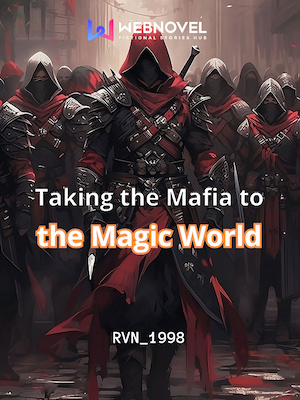Chapter 113: Internal Challenges
As Napoleon rapidly resolved the Turin issue, the French mobilized more armies and turned their attention to the north. Their timing was impeccable because, at the very moment they launched their offensive, the anti-French alliance faced internal discord.
Much like the fable of the swan, the salmon, and the shrimp pulling a carriage together, each country in the anti-French alliance had its own agenda, leading to a lack of cooperation and even undermining each other.Updated from novelb(i)n.c(o)m
The British were primarily concerned with their interests in the Netherlands. They strongly advocated focusing their main force on the attack on Dunkirk, surrounding it by sea and land and requesting the Prussians and Austrians to join the assault.
However, Dunkirk wasn't an attractive target for the Austrians and Prussians. Instead, they urged the British to shift their forces quickly to the Belgian border to launch a decisive attack on the French, considering Dunkirk a "secondary target."
The British army was limited and heavily engaged in securing their more visible interests in overseas colonies. The Austrians and Prussians tried to persuade the British to mobilize more troops swiftly. However, Prime Minister Pitt was reluctant to disrupt the nation's development rhythm. As a compromise, Britain provided funds and weapons, while Italy contributed troops to fight alongside the French.
The British recruited a mercenary force of over ten thousand men in Italy and used Austrian roads to transport them to Belgium. However, when this force arrived in August, the British claimed that, due to changes in the battlefield situation, they needed to deploy these mercenaries in the battle for Dunkirk.
The Austrians and Prussians argued that they had already factored this mercenary force into their plans. While they didn't intend to use the Italian mercenaries as a primary force (their combat effectiveness was questionable, and they were more affordable), they could have been employed for defensive purposes, allowing more troops to be freed up. Now, the British's sudden change of plans left them unable to proceed with their attack.
But the reality was different from what the British had stated. Recently, Empress of Eastern Rome had fallen ill due to the loss of her beloved Duke Bohemond. Her illness had caused unrest in the areas controlled by Prussia. The illness of the empress, on one hand, emboldened Prussia and Austria to consider gaining more benefits from Poland. Still, on the other hand, it required military support to realize these plans.
Austria and France shared a border, making it challenging for Austria to recall its troops. However, Prussia saw an opportunity to redeploy its forces eastward since it believed the Rhine Confederation was currently secure, and its interests in France were limited. The Prussians had long contemplated moving more of their troops eastward, but Austria had used various means to keep them engaged.
When the news of over ten thousand Italian mercenaries joining the Belgian front reached Austria, it became increasingly difficult to retain the Prussians. The Italians had yet to arrive when the Prussians began withdrawing the bulk of their forces. They reasoned that the Italian mercenaries would fill the gap left behind. However...
On the opposing front, the French situation was entirely different. Envoys from various regions quickly executed those with "De" in their names on the guillotine while sending vast amounts of wealth and conscripted soldiers to Paris. By the end of September 1793, France had organized an army of up to one million soldiers. Yes, most of these troops were inadequately trained and poorly equipped due to the inability of military production to match the pace of conscription. But their morale was high.
While most of these units couldn't be deployed for combat, the newly trained forces (though their training was quite limited) were continuously sent northward by the revolutionary government. Unlike the situation during the Dumouriez defection, the French army had regained its morale and had a significant numerical advantage.
Using the hesitancy of the anti-French alliance to their advantage, Carnot concentrated a large number of troops in the Nord department and, under the supervision of Saint-Just, launched a counterattack in early September. They first defeated the British forces led by the Duke of York at Hondschoten, then turned their attention to the direction of Moberg, where they routed the Austrian army under General Coburg.
His wife turned pale, looking around anxiously. She whispered, "Are you out of your mind? Can you say such things so casually? Do you have a death wish?"
"What can they do to me?" Carnot asked, his voice lowered. "Honestly, this is all getting out of hand. And even though I'm the one responsible for the recent victories, the series of triumphs has undermined the authority and legitimacy of the Committee of Public Safety. My position is no better."
"Can't you go to Joseph's laboratory and discuss the research situation with him? Or ask him to come to the War Department and report to you?" his wife suggested.
"Hmm, that might be an option. Joseph certainly has more ideas, given his diverse research. Maybe he'll find a solution," Carnot conceded.
In contrast to Carnot, who had seen his standing fall due to the victories, Joseph's position had actually improved. He was responsible for the laboratory that had developed the hand grenade, which had proven highly effective in the Battle of Toulon and the northern battles. Napoleon praised it as the "infantry's artillery" and "Jupiter's lightning," acknowledging that without these grenades, their victories and the capture of the critical fortress of Maastricht would have been much harder, if not impossible.
Up north, at Saint-Omer, Saint-Just was similarly impressed with the products from Joseph's laboratory. "This new weapon has played a decisive role," he reported. "Well-trained soldiers can throw it fifty or sixty meters, ensuring relatively accurate targeting. This distance is not much different from the usual range of enemy musket fire. In Hondschoote, the British, as usual, wanted to rush us with bayonets. They were halfway there when they were scattered by grenade explosions. The grenades also played a decisive role in Moberg. The grenadiers, especially those equipped with grenades, were the enemy's nightmare. Therefore, I recommend that grenade production be treated as the most urgent and critical military task. Everything related to grenades must be kept as the highest state secret."
Due to this achievement, Joseph was promoted to brigadier general. However, his rank was still below Napoleon's. During the promotion ceremony, Joseph emphasized Lavassier's contributions to the research, informing the Committee of Public Safety's observer, Charles, that Lavassier's research team had been instrumental in the development of the grenades and explosives. Joseph even suggested naming the explosive after Lavassier.
However, the Committee of Public Safety argued that Lavassier was an imprisoned enemy and that all his research results were obtained by taking what rightfully belonged to the people. They believed he didn't deserve the honor. As a result, the explosive was named the Republic's No. 1 explosive, and the hand grenade was named Equality No. 1 hand grenade. To the outside world, it was proclaimed as the collective achievement of the Military Technical Laboratory. However, soldiers preferred to call it the "Bonaparte's Little Melon."
It was said that after Joseph informed Lavassier of the Committee of Public Safety's decision regarding the naming of the grenades, Lavassier muttered, "It doesn't matter. I've contributed enough to science to have a substantial chapter in scientific history. Besides, a weapon that defends these tyrants, if named after me, is just an irony! Well... that's how it is!"
However, after some time, he remarked, "Well, Joseph, if I were an Englishman, I could earn a fortune just from the patent for the nitration of starch. In France, we don't even have the power to name things, let alone claim patent rights."
Joseph could only console him, saying, "Mr. Lavassier, as long as you take care of your health as I suggestedmaintain a healthy diet and run regularly every dayyou'll have the opportunity to receive patent fees in the future."
Speaking of running, Lavassier said, "You know, running has seemingly improved my health. It's made me eat more. But when I run every day in the sunlight, I can see that thug named Charles peeping at me from behind an iron window."
"I told him it's part of your disciplinary training," Joseph said. "Of course, I was just trying to placate him."
"I understand that," Lavassier said. "What I was actually thinking is that when I'm running in the sunlight and he's lurking behind a dark iron window, I wonder who looks more like a prisoner."







